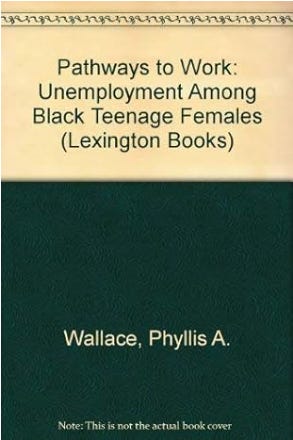Without a Clear “Why?” Don’t Invest in DEI
Here are two ideas from my book, Reconstructing Inclusion: Making DEI Accessible, Actionable, and Sustainable and other texts I leaned on in writing it. In addition, I’ve included one quote, a book recommendation, and a video or article that has inspired or influenced me and hopefully will resonate with you, too. (That’s ✌🏿+ 💡📚➕).
Page 99-100
"In the current times, if an organization wants the organizational purpose solely to revolve around profitability, rising stock, and abundant dividends, I suggest that they don’t invest much more in diversity, equity, and inclusion. When a company is only about what they can gain versus what they can deliver beyond extrinsic benefit, investing into their DEI office will result in very little other than being able to check the box, perhaps with additional budget. Many times, the investment can have negative effects because the “why” they invested is rooted in something short-lived. It is not structured for sustainable impact.
The organization won’t have a material stake in the prioritization of DEI. Without it, programs to create equity won’t be successful. In fact, the efforts will remain as or revert to being the programs for “them”—more than ever before."
Related article: DEI practices are still stuck on race and gender

Page 103-104
"If the objective is to create an organization whose people thrive through inclusive actions, there needs to be a movement away from any form of “us vs. them” binaries. They are contrary to all the foundational elements of an Inclusion System, starting with the first one that talks about inclusion being accessible to everyone in an organization. It is critical that we are intentional and unambiguously prioritize creating solidarity across humankinds, investing in organizational efforts toward care/community, openness, safety, and trust, or your organizational efforts will never be sustainable.
In fact, any subtle, conscious, or unconscious actions toward creating a lane for blame and/or othering will exhaust DEI efforts. Such fatigue is created when we develop frameworks for DEI that are incomplete. Building approaches that don’t hold promise for the betterment of everyone in our organizations creates missed opportunities. If the DEI journey isn’t constantly adjusting in order to evolve beyond our relatively modest expectations (e.g., increased representation, ignorance not being surfaced), what purpose do our efforts serve?"
💡A Quote
“What is needed is a different way of thinking about employees—not as workers only but as people with complicated lives for whom employment is a critical, but not the only, activity—and an acceptance of the necessary link between their private lives and the work of the organization.”
― Lotte Bailyn, Professor, Work and Organization Studies, Emerita MIT Sloan School of Management
📚A Book
Photo Credit: Amazon.com
Pathways to Work: Unemployment Among Black Teenage Females
By Phyllis A. Wallace, First Tenured Professor of the MIT Sloan School of Management
➕An Article
by: Joyce K. Fletcher, Lotte Bailyn, and Stacy Blake Beard
In Critical Management Studies at Work: Negotiating Tensions Between Theory and Practice, 82-93. Cheltenham, UK: Edward Elgar Publishing, 2009.
A snippet from the article:
“Focusing on work practices that have effectiveness as well as equity implications not only engages a broader constituency, it relaxes the adversarial positioning of marginalized vs. dominant perspectives.”
I hope this was helpful. . . Make it a great day! ✌🏿
In this episode of the ‘Reconstructing Inclusion’ podcast, I chat with Dr. Starling David Hunter III, whose research, teaching, and consulting all focus on the application of social network analysis to questions of organization design and performance. We delved into the dynamics of teaching in diverse cultural contexts and how adapting teaching methods has unveiled the cultural underpinnings of organizational theories and the challenges of making Organizational Network Analysis (ONA) a necessary component in people analytics and organizational development.




